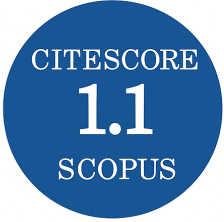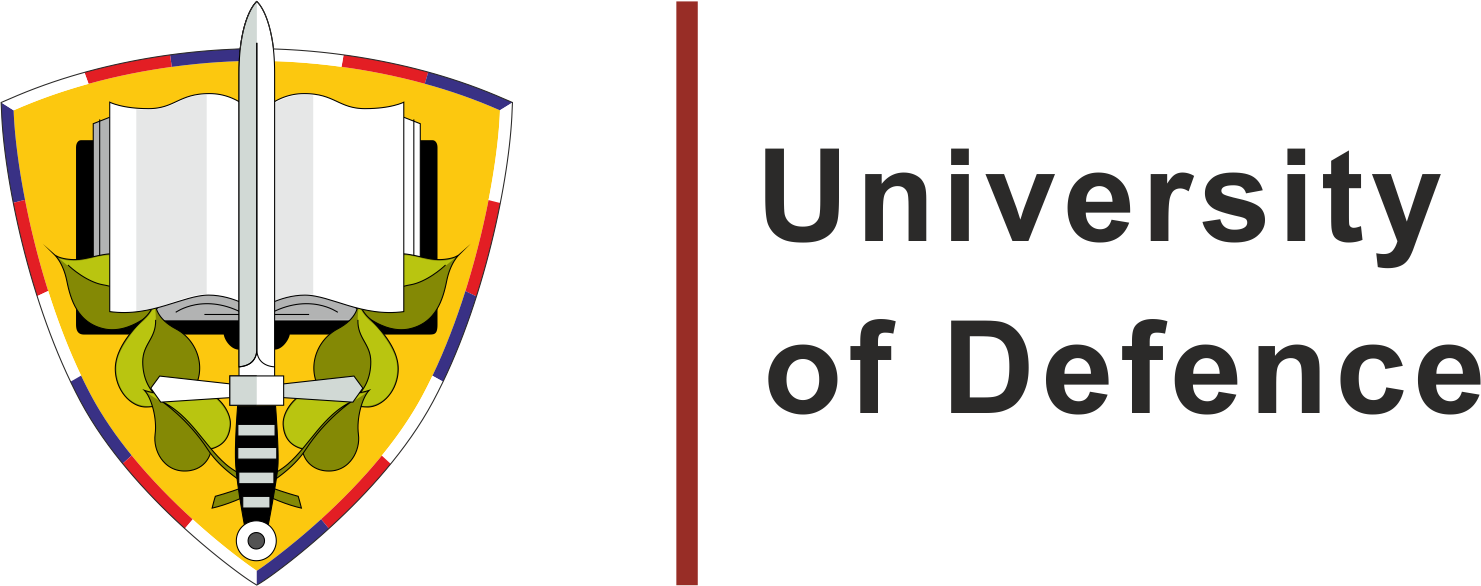Counterintelligence in Afghanistan: Preliminary Credibility Assessment Screening System
DOI:
https://doi.org/10.3849/aimt.01343Keywords:
Afghanistan, counterintelligence, North Atlantic Treaty Organization, security forcesAbstract
The present article explores one of the most relevant counterintelligence (CI) programs in Afghanistan. The preliminary credibility assessment screening system (PCASS) assisted to provide initial screening of suspects for further follow up of intelligence and security forces. Thus, the objective of this article is to explore the dynamics of employing this technology in fragile states in support of the intelligence activities. To that purpose, we have used an exploratory case study research, which included several sources of data collection. We found that PCASS is used to empower the Afghan police forces to identify and neutralize insider threats, but also to keep NATO-coalition forces safer. Further research should focus, for instance, on the impact of the Afghan culture on PCASS operations.
References
WALTERS Jr., R.P. and TRAUGUTT, L.G. The State of Afghanistan’s Intelligence Enterprise. Military Review [on‐line]. May-June 2017, p. 64-71. [cited 2019-07-30]. Available from: https://www.armyupress.army.mil/Portals/7/military-review/Archives/English/The-State-of-Afghanistans-Intelligence-Enterprise.pdf
ROGGIO, B. and LUNDQUIST, L. Green‐on‐Blue Attacks in Afghanistan: the Data. The Long War Journal [on‐line]. June 2017. [cited 2019-07-29]. Available from: http://www.longwarjournal.org/archives/2012/08/Green-on-blue_attack.php
REIS, J. and MENEZES, S. The Portuguese Special Operations Forces as Instrument of Foreign Policy: The Case Study of Afghanistan. In: ROCHA Á., PEREIRA R.P. (eds). Developments and Advances in Defense and Security. Singapore: Springer, 2020, p. 245-256. ISBN 978-981-13-9154-5.
ERLANGER, S. and NORDLAND, R. France, breaking with NATO, will Speed Afghan Exit. The New York Times [on‐line]. January 2012. [cited 2019-06-29]. Available from: https://www.nytimes.com/2012/01/28/world/europe/france-tospeed-afghan-withdrawal.html
Two U.S. Service Members Killed in Afghanistan. NATO Resolute Support [online]. July 2019. [cited 2019-07-25]. Available from: https://rs.nato.int/news-center/news-releases/2019-news-releases/two-us-service-members-killed-in-afghanistan-2.aspx
FULLER, C., BIROS, D. and DELEN, D. An Investigation of Data and Text Mining Methods for Real World Deception Detection. Expert Systems with Applications, 2011, vol. 38, no. 7, p. 8392-8398. https://doi.org/10.1016/j.eswa.2011.01.032.
GOLGOUNEH, A. and TARVIRDIZADEH, B. Fabrication of Portable Device for Stress Monitoring using Wearable Sensors and Soft Computing Algorithms. Neural Computing and Applications, 2019, p. 1-23. https://doi.org/10.1007/s00521-019-04278-7.
IACONO, W. Effective Policing: Understanding How Polygraph Tests Work and are Used. Criminal Justice and Behavior, 2008, vol. 35, no. 11, p. 1295-1308. https://doi.org/10.1177/0093854808321529.
VOETELINK, J.E.D. The Status of Foreign Forces in Afghanistan Post 2014. Militair Rechtelijk Tijdschrift [on‐line]. 2015, vol. 108, no. 1, p. 1-19. [cited 2019-07-18]. Available from: https://pure.uva.nl/ws/files/2407192/157116_Status_of_Force_AFG_post_2014_Voetelink.pdf
Mission. NATO Resolute Support [on‐line]. 2019. [cited 2019-07-08]. Available from: https://rs.nato.int/about-us/mission.aspx
RS Security Force Assistance Guide 3.1 [on‐line], July 2014. 242 p. [cited 2019-07-15]. Available from: https://www.yumpu.com/en/document/read/32892383/20140927-niu-cj7-trex-sfa-guide-31
Enhancing Security and Stability in Afghanistan. [Report to Congress] [on‐line]. December 2018. 124 p. [cited 2019-07-18]. Available from: https://media.defense.gov/2018/Dec/20/2002075158/-1/-1/1/1225-REPORT-DECEMBER-2018.PDF
DEPARTMENT OF ARMY (DA). U.S. Army Counterintelligence Handbook. New York: Skyhorse Publishing, 2013. 296 p. ISBN 978-1-62087-478-4.
PETERSON, K.E. Information Security and Counterintelligence. In IFPO. The Professional Protection Officer. Oxford: Butterworth-Heinemann, 2010. 623 p. ISBN 978-1-85617-746-7.
WETTERING, F.L. Counterintelligence: The Broken Triad. International Journal of Intelligence and CounterIntelligence, 2000, vol. 13, no. 3, p. 265-300. https://doi.org/10.1080/08850600050140607.
Police Intelligence Investigations Advisor [Job Recruitment] [on‐line]. 2014. [cited 2019-06-20]. Available from: https://www.dcpas.osd.mil/expeditionary/pdf/Police_Intelligence_Inv_Advisor_Job_Description.pdf
Counterintelligence Support to Force Protection. Number 5240.22 [on‐line]. April 2019. [cited 2019-07-02]. Available from: https://fas.org/irp/doddir/dod/i5240_22.pdf
HARRIS, J.C. and McQUARRIE, A.D. The Preliminary Credibility Assessment System Embedded Algorithm Description and Validation Results. Johns Hopkins University [on‐line]. 2009. 42 p. [cited 2019-06-07]. Available from: https://pdfs.semanticscholar.org/8177/85ac60d16c8513f3c822a65488e6402cd186.pdf?_ga=2.266482188.381125591.1571538086-1362952980.1551824303
SENTER, S., WALLER, J. and KRAPOHL, D. Validation Studies for the Preliminary Credibility Assessment Screening System (PCASS) [on‐line]. Fort Jackson: Department of Defense Polygraph Institute, November 2006. 65 p. [cited 2019-06-07]. Available from: https://www.wired.com/images_blogs/dangerroom/files/PCASS_DACA_studies.pdf
HUGDAHL, K. Psychophysiology: The Mind-body Perspective (Perspectives in Cognitive Neuroscience). Cambridge: Harvard University Press, 1995. 448 p. ISBN 978-0-674-00561-7.
Justification for FY 2020 Overseas Contingency Operations Afghanistan Security Forces Fund [on‐line]. U.S. Department of Defense. March 2019. 115 p. [cited 2019-06-14]. Available from: https://comptroller.defense.gov/Portals/45/Documents/defbudget/fy2020/fy2020_ASFF_Justification_Book.pdf
MILLS, J.A., DUREPOS, G. and WIEBE, E. Encyclopedia of Case Study Research. Thousand Oaks: SAGE Publications, 2010. 1152 p. ISBN 978-1-4129-5670-3.
GIVEN, L.M. The SAGE Encyclopedia of Qualitative Research Methods. Thousand Oaks: SAGE Publications, 2008. 1072 p. ISBN 978-1-4129-4163-1.
YIN, R.K. Case Study Research: Design and Methods. Thousand Oaks: SAGE Publications, 2003. 181 p. ISBN 978-1-4522-4256-9.
TRACY, S.J. Qualitative research methods: Collecting evidence, crafting analysis, communicating impact. Hoboken: Wiley, 2019. 432 p. ISBN 978-1-119-39080-0.
HANCOCK, D.R. and ALGOZZINE, B. Doing case study research: A practical guide for beginning researchers. New York: Teachers College Press, 2016. 144 p. ISBN 978-0-8077-5268-5.
BLAXTER, L., HUGHES, C. and TIGHT, M. How to Research. Maidenhead: Open University Press, 2010. 304 p. ISBN 978-0-335-23867-5.
MERRIAM, S.B. and TISDELL, E.J. Qualitative research: A guide to design and implementation. Hoboken: Wiley, 2015. 368 p. ISBN 978-1-119-00361-8.
GILLHAM, B. Case Study Research Methods. London: Bloomsbury Publishing, 2000. 114 p. ISBN 978-0-8264-4796-8.
Downloads
Published
License
Copyright (c) 2020 Advances in Military Technology

This work is licensed under a Creative Commons Attribution-NonCommercial 4.0 International License.
Authors who publish with this journal agree to the following terms:
1. Authors retain copyright and grant the journal right of first publication with the work simultaneously licensed under a Creative Commons Attribution License that allows others to share the work with an acknowledgement of the work's authorship and initial publication in this journal.
2. Authors are able to enter into separate, additional contractual arrangements for the non-exclusive distribution of the journal's published version of the work (e.g., post it to an institutional repository or publish it in a book), with an acknowledgement of its initial publication in this journal.
3. Authors are permitted and encouraged to post their work online (e.g., in institutional repositories or on their website) prior to and during the submission process, as it can lead to productive exchanges, as well as earlier and greater citation of published work.
Users can use, reuse and build upon the material published in the journal for any purpose, even commercially.






